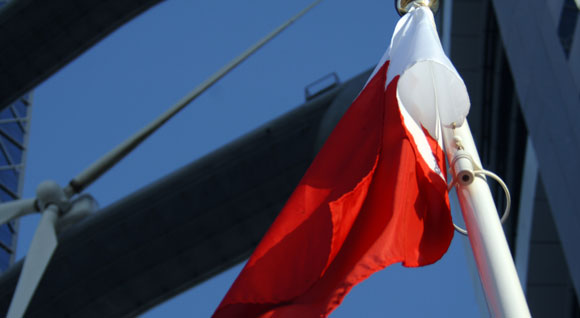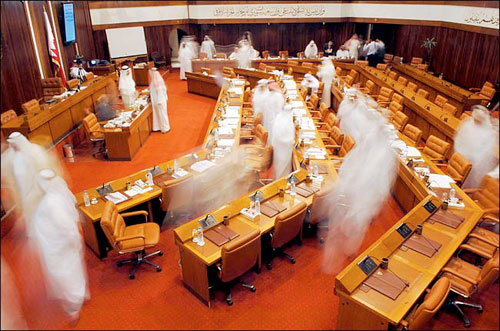Bahrain Constitutional History Since Independence
Bahrain Top Stories
Bahrain Constitutional History Since Independence
The constitution was promulgated in December 1973, concurrent with the election of the members of the National Assembly, thereby transforming the country into a constitutional monarchy.

Bahrain Constitutional History Since Independence
The constitution was promulgated in December 1973, concurrent with the election of the members of the National Assembly, thereby transforming the country into a constitutional monarchy.
Shortly after independence was declared in 1971, the Emir, Sheikh Isa bin Salman Al Khalifa, in 1973 issued a decree creating a Constituent Assembly to draw up a new constitution, thereby transforming the country into a constitutional monarchy.
The Constituent Assembly was to be composed of 22 members popularly elected, plus 8 members appointed by the Emir, and 12 members of the Council of Ministers (also appointed by the Emir), for a total of 42 members. The Constituent Assembly drafted a constitution providing for a unicameral National Assembly, composed of 33 members popularly elected, plus 14 ministers appointed by the emir. The constitution was promulgated in December 1973, concurrent with the election of the members of the National Assembly, thereby transforming the country into a constitutional monarchy.
|
loading the player….
|
Only this one election was held under the new constitution. In 1975, the constitution was suspended because the National Assembly refused to adopt the State Security Law of 1974. A “state of emergency” was declared, and Bahrain was ruled for the next two decades by royal decrees carried out by appointed ministers.
Upon the death of Emir Isa bin Salman Al Khalifa in 1999, his son, Hamad ibn Isa Al Khalifa, becomes Emir. In 2000, the new Emir issued a National Action Charter (NAC), proposing to return to constitutional government, but also proposing to amend the 1973 constitution by providing for a bicameral parliament, consisting of a popularly elected lower chamber of 40 members with legislative powers, and an upper chamber of 40 members to be appointed, but having only advisory powers.
The new constitution was adopted by referendum on February 14/15 2001, with 98,4% of turnout. On February 17, 2001, the Emir declared Bahrain to be a Kingdom.
In 2002 the King promulgated the new constitution, but made changes to it to make the upper–called the Shura–which is appointed by the King, equal in legislative power to the elected chamber–called the Parliament. Elections were called for October 24/30, 2002, but many parties of both the secular left and religious right (Shi’a) boycotted the elections to protest the change in the powers of the upper chamber. Sunni Islamists win at least 18 of the 40 seats in the lower chamber, while secularists win 21.
In the parliamentary elections of 2006, with no boycott and a turnout of 72%, Shi’a and Sunni Islamists won a majority of the seats, with secular liberals reduced to a minority.
In the 2010 elections, Shi’a Islamists win 18 seats, with Sunni Islamists, Sunni Salafists, and Sunni Independents winning 22.